Mr. Hoang Dinh Buong (75 years old, Ba Don town) is a retired teacher, he is also the author of many books of poems and wartime memoirs. Half a century after the day of peace , he still persistently preserves his memories in writing as if to tell the next generation to better understand the price of independence.
The man who passed through the fire
Loving literature and reading, the young man Hoang Dinh Buong entered university with a simple dream: to become a literature teacher. But in 1971, when the country entered the fiercest phase of the resistance war against the US, he - like more than 200 students and lecturers of Vinh Pedagogical University - left the podium, joined the army, and shouldered his backpack to go to battle.
On the march from Nghe An to Tri Thien, from Quang Tri to the mountains of Thua Thien-Hue, the luggage he brought was not only an AK gun, a backpack full of bullets. Inside was a small notebook. In it were poems - where he recorded his thoughts, anguish, and emotional fragments between the line of life and death. His unit had a very special name: Literature-History Squad. The war had broken their dream of standing on the podium, but bombs and bullets could not stop their love for literature.
Author Hoang Dinh Buong (top row, right) with his classmates before the march. |
During his years on the battlefield, he chose to write a diary in verse. Once, his hastily written handwritten poems were burned in the fire. Twice he was wounded, twice his poems were lost in the smoke of gunfire. But fortunately, he still remembered those heartfelt poems to preserve them. There were poems patched together from memories, from painful scars, from the names of comrades who fell on his shoulders. In the poem "Roll Call", he wrote about the pain that crossed the two banks of time: "Half the platoon was lost/Half were wounded/The smell of war was overwhelming/Roll Call made my heart ache". Only those who had been through the war, witnessed the pain and loss, could have such a special way of "roll calling", which, as he said, was "roll calling with both blood and tears".
The words are not elaborate, not metaphorical, not smooth, not stylized. But it is that simplicity that hits the reader's heart with the most genuine, naked emotions about loss. Hoang Dinh Buong's poetry is not necessarily his own feelings. It is the echo of a generation. It is the farewell that has not been said, the news from home that has not been sent, the last glance of a friend who has passed away. For him, writing is to preserve memories for those who no longer have the chance to tell them. He once wrote about a friend who fell in the middle of the forest, the unfinished letter still in his backpack. He wrote about the nights of marching when the sound of the Truong Son stream murmured like a mother's lullaby. He wrote about the silence of nameless graves, where death does not need a record, just a withered leaf is enough to be a marker.
During 10 years on the battlefield, his 6th Infantry Regiment - Phu Xuan went through 2,828 battles. More than 12,000 soldiers were sacrificed. On the day of peace, the Literature - History squad had only 7 people left but everyone had bomb and bullet wounds on their bodies. He said: "The battle has haunted me all my life, seeping into every vein and muscle. Even at this age, my blood is still the blood of a soldier on the battlefield". That soldier, right in the first days of the battle, used charcoal to write verses by poet To Huu on a wooden wall as an oath engraved in his heart: "I am determined to keep my land/Not even an inch!/This is the hour of life and death/Why do I need blood and bones?".
"Nothing can be forgotten"
Returning from the battlefield, he returned to his original dream: to become a literature teacher. But the war did not end like a book. It silently followed him into the classroom, into every lecture. There was a lecture on the poem “Comrades”, he was speechless. One day, while writing on the board, his hand suddenly stopped, afraid of accidentally writing the name of a deceased friend. The fragile boundary between “lived” and “lost” always haunts those who have gone through fire and bullets. As he once wrote in the poem “Begging for Time”: “ Hair covered in frost/Half alive, half positive/Half negative, anxious/Half past/Half reflecting on the present/Thrilled for the future/Life is so long and wide/If I take a wrong step, I will be guilty/The poem Truong Son I wrote in the clouds and mountains/Can anyone read it at the end of the distant sky?”.
The poetry and memoirs of author Hoang Dinh Buong are all about war. |
For teacher Buong, war is not just a story, but a silent moral lesson, deeply absorbed in each lesson. In the eyes of many generations of students, he is a teacher who tirelessly sowed knowledge from the "fire" of the battlefield and with unforgettable memories. In his class, students heard about Nguyen Du, Nguyen Trai but also talked about the nameless soldiers, whose names only remained in poems and memories of their comrades. He did not preach morality, he told stories soaked in blood, tears and humanity, enough to make students sit silently for hours and remember them forever.
Author Hoang Dinh Buong, born in 1950, is the former Principal of Luong The Vinh High School (Ba Don Town). He has published many poetry and memoir collections about the war, typically "Yen Ngua Sau Cuoc Chien", "Hang Hanh Thoi Gian", "Diem Danh", "Diep Khuc Doi", "Noi Niem Regiment"... In which, the memoir collection "Yen Ngua Sau Cuoc Chien" won the B prize of the 6th Luu Trong Lu Literature and Arts Award (2016-2020). |
In addition to poetry, Hoang Dinh Buong is also the author of many emotional memoirs and reports. Books such as “Yen Ngua Sau Cuoc Chien”, “Noi Niem Trung Doan”… are not only war documents but also a stream of literature. His writing is full of real substance, not “showy” or “adorned”. Each character, each detail has the shadow of someone, who lived, sacrificed and was remembered by him with all the heart of a soldier, as assessed by writer Nguyen The Tuong, “reading the writing of a soldier who was a former student of the Faculty of Literature about to graduate and stand on the podium, readers will “pick up” countless valuable details of the war”.
Mr. Hoang Dinh Buong is 75 years old this year, living with his small family in Ba Don town. The corner of his office is simple with a wooden shelf, neatly arranged with poetry books, memoirs, and textbooks. He still reads 50-60 pages of books every day, an indispensable habit of a person who has devoted his whole life to knowledge.
Not everyone who has been through war chooses to tell about it. Some people stay silent because it hurts too much. Some people forget to live a lighter life. But he - a man who has been through fire and flowers - chooses to write, not to glorify himself but to preserve for future generations a part of the truth. For him, each line of poetry, each page of a book is a stick of incense for the deceased, because like the poem by Russian poet Olga that he always cherishes: "No one is forgotten/Nothing can be forgotten". His writings are like a silent reminder that peace does not come easily and memories need to be told so that the lessons of the past are not forgotten.
Dieu Huong
Source: https://baoquangbinh.vn/van-hoa/202504/song-de-ke-lai-viet-de-giu-gin-2225925/


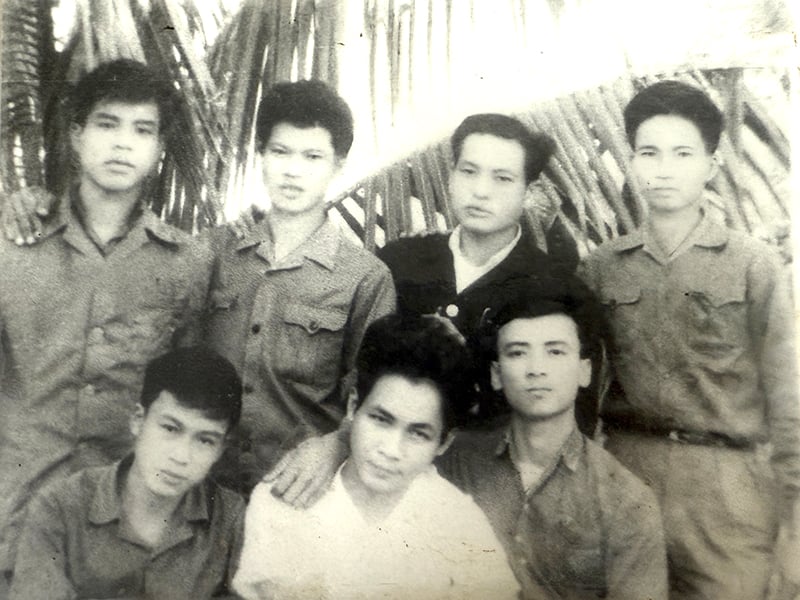
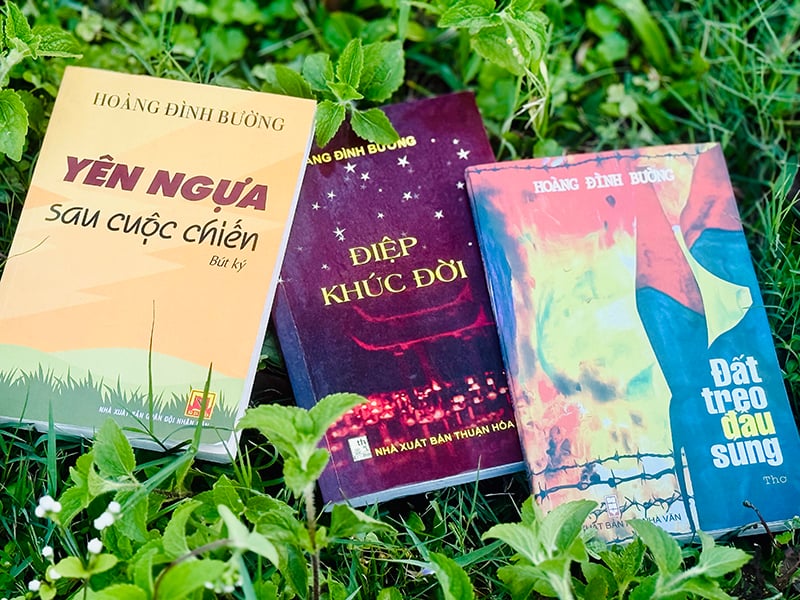
![[Photo] Party and State leaders attend the special art program "You are Ho Chi Minh"](https://vphoto.vietnam.vn/thumb/1200x675/vietnam/resource/IMAGE/2025/5/18/6895913f94fd4c51aa4564ab14c3f250)
![[Photo] Many young people patiently lined up under the hot sun to receive a special supplement from Nhan Dan Newspaper.](https://vphoto.vietnam.vn/thumb/1200x675/vietnam/resource/IMAGE/2025/5/18/6f19d322f9364f0ebb6fbfe9377842d3)



![[Photo] Ready for the top competitions of Vietnamese table tennis](https://vphoto.vietnam.vn/thumb/1200x675/vietnam/resource/IMAGE/2025/5/18/9c547c497c5a4ade8f98c8e7d44f5a41)


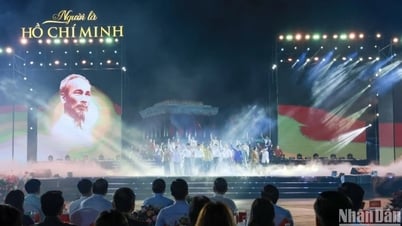



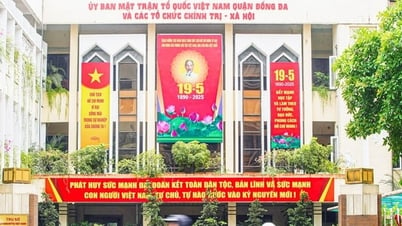
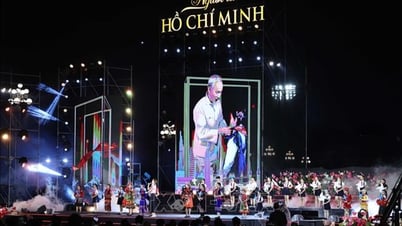







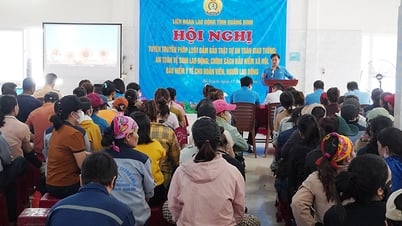


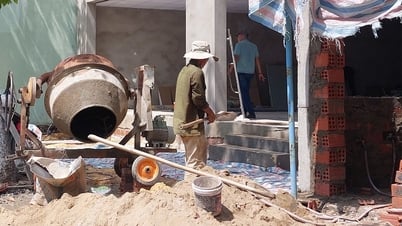













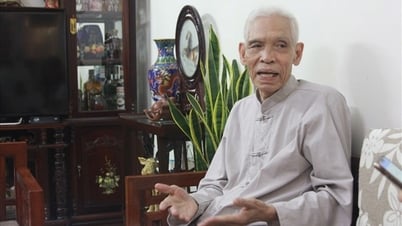




















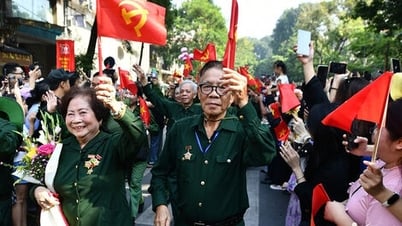

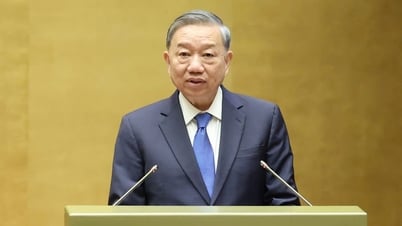



























Comment (0)